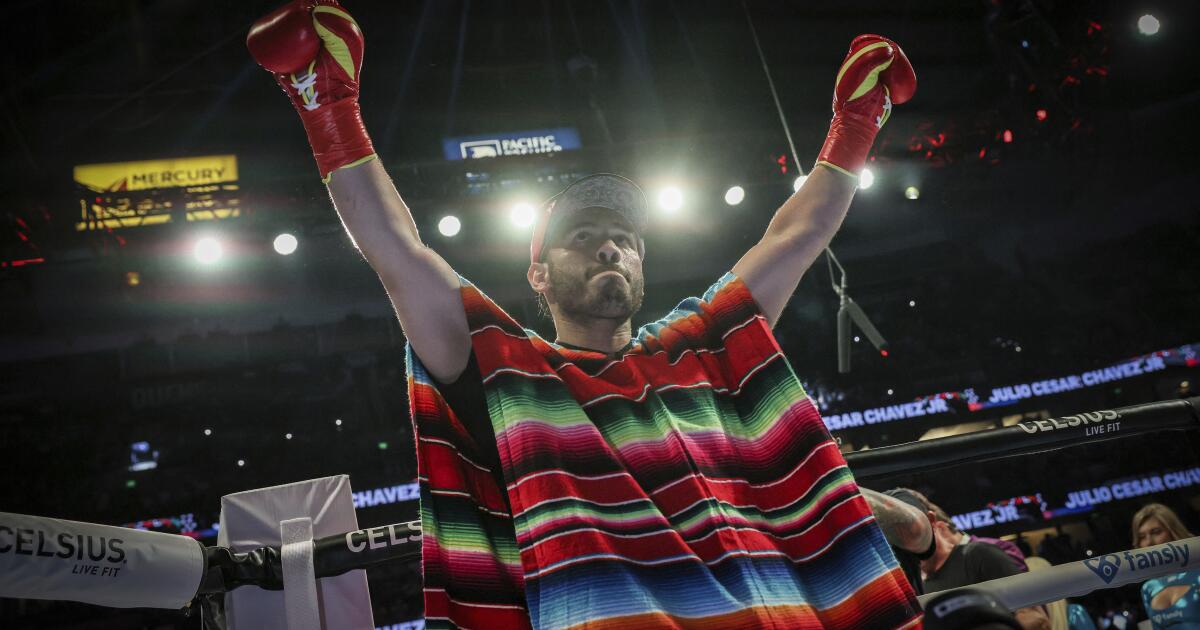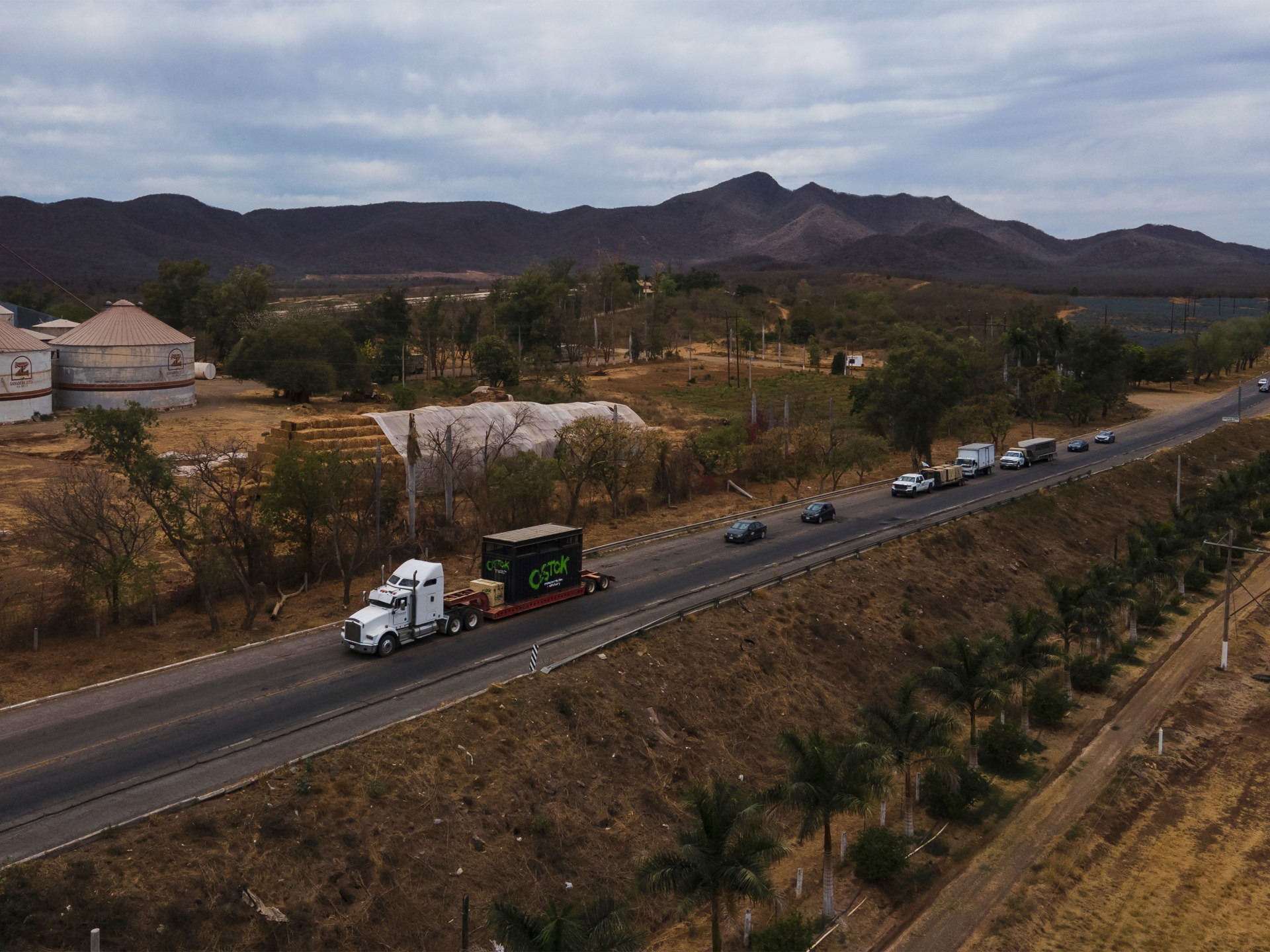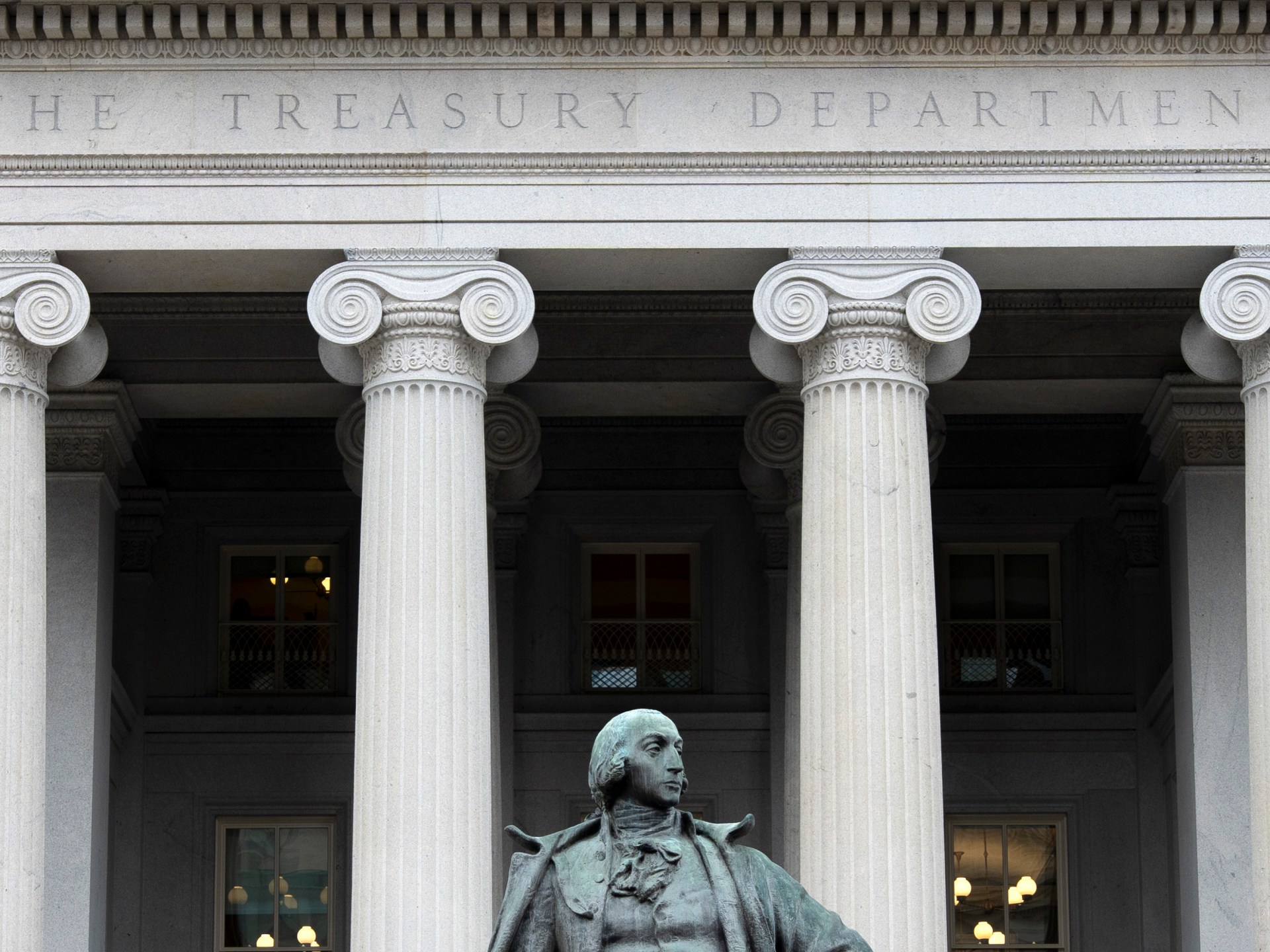ICE arrests Mexican boxer Julio César Chávez Jr., alleges cartel links
United States immigration agents have detained prominent Mexican boxer Julio César Chávez Jr. and are working to deport him, with officials saying he has “an active arrest warrant in Mexico for his involvement in organized crime and trafficking firearms, ammunition, and explosives.”
Immigration and Customs Enforcement officials arrested Chávez, 39, in Studio City on Wednesday and are processing him for expedited removal from the U.S., according to the Department of Homeland Security, which oversees ICE.
A Homeland Security news release said Chávez had been flagged as a public safety threat, but “the Biden administration indicated in internal records he was not an immigration enforcement priority.”
Last year in January, officials said, the Los Angeles Police Department arrested Chávez and he was charged with illegal possession of an assault weapon and manufacture or import of a short barreled rifle. He was later convicted of the charges.
Chávez’s manager, Sean Gibbons, told The Times they are currently “working on a few issues” following the boxer’s arrest but had no further comment.
Michael A. Goldstein, a lawyer who has worked with Chávez in previous cases, said his client “was detained outside of his residence by 25 or more ICE and other law enforcement agents.”
“They blocked off his street and took him into custody leaving his family without any knowledge of his whereabouts,” Goldstein said. “The current allegations are outrageous and appear to be designed as a headline to terrorize the community. Mr. Chavez is not a threat to the community.”
The son of Mexican boxing legend Julio César Chávez, widely regarded as the greatest boxer in his country’s history, Chávez Jr. faced off on Saturday against influencer-turned-fighter Jake Paul and lost.
Two weeks before the Anaheim bout against Paul, Chávez held a public workout in Maywood, where he spoke to The Times. He revealed that one of his trainers had skipped the training session out of fear of immigration enforcement.
“I was even scared, to tell you the truth. It’s very ugly,” Chávez said. “I don’t understand the situation — why so much violence? There are a lot of good people, and you’re giving the community an example of violence. I’m from Sinaloa, where things are really ugly, and to come here, to such a beautiful country with everything… and see Trump attacking immigrants, Latinos, for no reason. Not being with God makes you think you know everything. Trump made a bad decision.”
He added: “After everything that’s happened, I wouldn’t want to be deported.”
When U.S. officials announced the arrest Thursday, they referred to Chávez as an “affiliate of the Sinaloa cartel.” The Trump administration has designated the Mexican drug trafficking group as a “Foreign Terrorist Organization.”
“Under President Trump, no one is above the law — including world-famous athletes,” DHS Assistant Secretary for Public Affairs Tricia McLaughlin said in a statement.
According to the Homeland Security news release, Chávez entered the country legally in August 2023, with a B2 tourist visa that was valid until February 2024. He had filed an application for lawful permanent resident status last year in April, officials said, based on his marriage to Frida Muñoz, a U.S. citizen, who U.S. officials said “is connected to the Sinaloa cartel through a prior relationship with the now-deceased son of the infamous cartel leader Joaquin ‘El Chapo’ Guzman.”
El Chapo, a known fan of Chávez Sr. during his fighting days, is now serving a life sentence in U.S. federal prison after a 2019 conviction for his leadership role in the Sinaloa cartel.
Muñoz was previously in a relationship with Edgar Guzmán Loera, El Chapo’s eldest son, who was killed in Sinaloa in 2008.
The couple had a daughter, Frida Sofía Guzmán Muñoz. Following Edgar’s death, Muñoz distanced herself from the family and moved to the United States, eventually beginning a relationship with Chávez. Their daughter, Frida Sofía, has recently launched a music career and frequently attends her stepfather’s fights, including the most recent fight in Anaheim.
Chávez has faced criticism over alleged associations with figures linked to drug trafficking. In lengthy social media videos, he has claimed friendship with Ovidio Guzmán, another son of El Chapo who court records show has agreed to plead guilty to federal drug trafficking charges in Chicago.
Last year, on Dec. 17, according to the Homeland Security news release, U.S. Citizenship and Immigration Services made a referral to ICE that Chávez was “an egregious public safety threat.”
“However, an entry in a DHS law enforcement system under the Biden administration indicated Chávez was not an immigration enforcement priority,” the release stated.
According to the release, Chávez was allowed to reenter the country on Jan. 4 at the San Ysidro port of entry.
“Following multiple fraudulent statements on his application to become a Lawful Permanent Resident, he was determined to be in the country illegally and removable on June 27,” the Homeland Security release stated.
Chávez has been in the boxing spotlight since childhood, often walking to the ring alongside his father. He began his professional career in 2003 and reached the pinnacle in 2011 when he won the WBC middleweight title against Sebastian Zbik. He defended the belt three times before losing it to Sergio Martínez in 2012.
However, his career has been plagued by discipline issues, substance abuse, and struggles with making weight. In 2017, he faced fellow Mexican star Saúl “Canelo” Álvarez, suffering a lopsided unanimous decision loss that marked a turning point in his career’s decline.
Nicknamed “El Hijo de la Leyenda” (“Son of the Legend”) or simply “JR,” Chávez Jr. has had legal and personal troubles in recent years. He was arrested on suspicion of weapons possession and later entered a residential rehab facility. His battle with addiction has frequently played out in the public eye, including viral social media disputes with his father, one of his most vocal critics, yet also his most steadfast supporter.
According to Homeland Security, Chávez was convicted in 2012 of driving under the influence of alcohol and was sentenced to 13 days in jail and 36 months of probation.
Goldstein, Chávez’s lawyer, noted that his client is a public figure who has been living and working in the U.S. without issue in recent weeks. Goldstein pointed to his recent fight, saying, “His workouts were open to the public and afforded law enforcement countless opportunities to contact him if he was indeed a public threat.”
“He has been focused on his own personal growth and mental health,” Goldstein said. “He is in full compliance with his mental health diversion and all court obligations. For this reason, we fully expect his only pending case to be dismissed as required by statute.”
In 2023, according to Homeland Security, a judge in Mexico issued an arrest warrant for Chávez “for the offense of organized crime for the purpose of committing crimes of weapons trafficking and manufacturing crimes.”
The release said the warrant was for “those who participate in clandestinely bringing weapons, ammunition, cartridges, explosives into the country; and those who manufacture weapons, ammunition, cartridges, and explosives without the corresponding permit.”
Mexican authorities, who typically do not reveal the full names of suspects in criminal cases, said Thursday that federal prosecutors had issued an arrest warrant for Julio “C” in March 2023 for organized crime and arms trafficking. A news release from Mexico’s equivalent of the attorney general’s office said U.S. officials had started the process of turning him over to face justice.
Mexico City bureau chief Patrick J. McDonnell contributed to this report.



